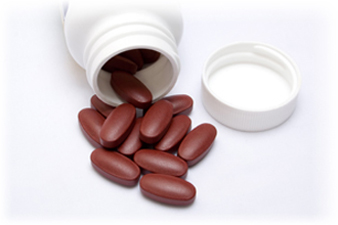Preparation for Procedures
GENERAL PREPARATION INFORMATION
Being prepared for you endoscopic exam is extremely important. There are several components to being prepared for your exam:
REDUCING ANXIETY
Most patients feel at least some level of anxiety prior to any surgery or procedure. It can be helpful to hear about other’s experiences. Bringing a friend or family member along for support can also be helpful. Bringing a book, magazine or personal music player can also help distract you and help you relax. If you have ever had a bad experience with a procedure, a history of abuse, or suffer from severe anxiety, please discuss this with one of our caring staff members. We want your experience to be safe and comfortable for you!
Knowing what to expect can help alleviate some of your anxiety. We recommend you learn as much about the procedure as you can. Please read the following pages:
MEDICATION AND DIET RESTRICTIONS

Medication and diet restrictions prior to the exam are critical for your safety before, during and after your exam. Because endoscopy procedures are typically done with conscious sedation, it is important that your stomach is empty to minimize the risk of aspiration (vomiting stomach contents into your lungs which might cause pneumonia). The requirement for all procedures is to stop all fluids at least 4 hours prior to the procedure. However, you may take a small sip of water with any necessary pills on the morning of your procedure. The cutoff for food intake is dependent on the procedure being done. Please consult your procedure paperwork for direction on when to stop solid foods prior to procedure or call our office if you have questions.
Medications which increase your risk of bleeding (e.g. Coumadin, Plavix, aspirin, NSAID’s) are often held prior to an exam in case any tissue needs to be removed. However, stopping these medications may also be dangerous (e.g. if you have a mechanical heart valve or have had a coronary artery stent recently placed). Medications which lower blood sugar (insulin or diabetese pills) may need to be decreased or held while you are fasting for your procedure to prevent dangerously low blood sugars. To maximize the safety of your exam:
-
Notify your physician of ALL medications, supplements, vitamins and herbs (some herbs can increase your risk of bleeding) that you take.
-
Medications for diabetes (such as pills or insulin) need to be carefully reviewed. Often you will be advised to hold or decrease the dose the day prior and the morning of your exam (we’d rather you have one day of too high blood sugar than life-threateningly too low!). Please review our diabetic medication instructions.
-
All aspirin and anti-inflammatory medications including ibuprofen, Motrin, Aleve, naproxen, Naprosyn, sulindac, piroxicam, Feldene, indomethacin, diclofenac, and Voltaren are to be continued. Tylenol (acetaminophen) is also safe to continue.
-
If you are taking anticoagulants or blood thinners (Lovenox, Heparin, Coumadin/warfarin, Eliquis/apixaban,
Pradaxa/dabigatran, Xarelto/rivaroxaban, Plavix/clopidogrel) we REQUIRE an office visit prior to your procedure. Please reach out to us if you have not had an office visit to discuss anticoagulation.
-
If you have had any recent heart events (for example stenting or heart attack), lung events (pneumonia or blood clots), stroke, history heavy bleeding, or reaction to sedation, please notify us.
-
If you have ever been told you need to take antibiotics prior to procedures, please notify us.
-
If you have any questions or concerns about any of your medications and your ability to take these or the risk of NOT taking them in preparation for your procedure, please notify the office at least 1 week prior to your exam so that one of our physicians may review your concerns.
A FEW WORDS ABOUT BOWEL PREPS
The colon typically has feces throughout it’s four to five foot length. When screening for colon cancer it is extremely important to have a well-cleansed colon so that the surface of the colon wall can be closely and carefully inspected. This maximizes your physician’s ability to find colon polyps, cancers, inflammation and flat or slightly depressed precancerous lesions. We rate colon cleansing as Excellent, Good, Fair or Inadequate. Since you may only need to undergo a colonoscopy every 10 years, it is worth the effort to make sure you get the best quality exam possible. The better the preparation, the better the exam. When a large amount of stool remains in the colon, this makes navigation more difficult, lengthens the time of the procedure, increases the risk of complications, and can ultimately prevent the discovery of even large polyps or other problems in the colon. Additionally a prep which is inadequate does little to assure you or your physician that all precancerous tissue has been discovered or removed.
With that said, people often describe the bowel cleansing as the most unpleasurable aspect of the entire colonoscopy process (because of sedation, most people are quite comfortable for the procedure itself!). Here are some tips to make the process as easy, comfortable and successful as possible: